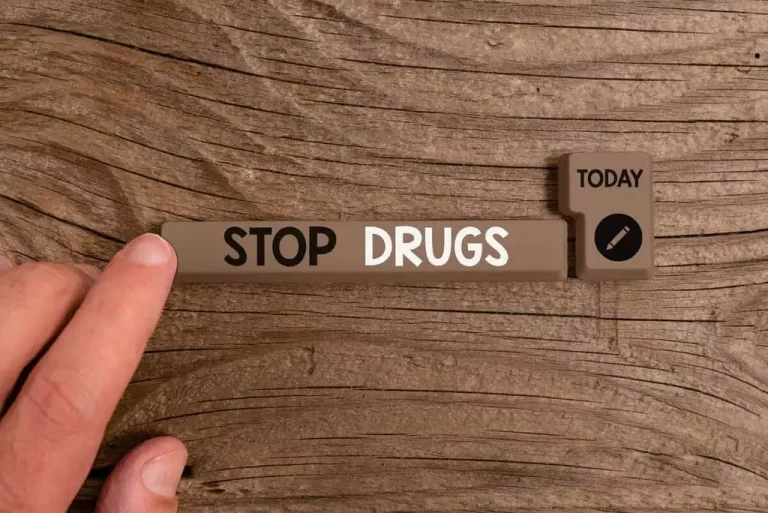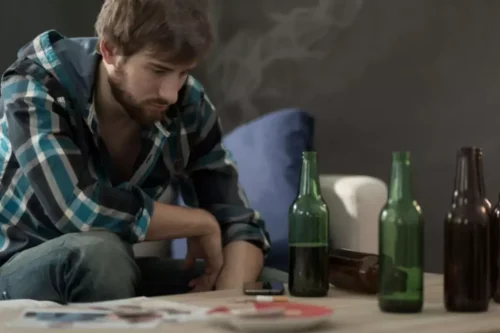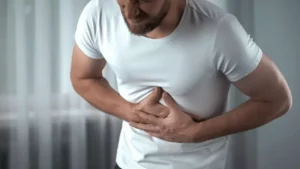
The action of suppressing this hormone exacerbates the diuretic effect and leads to dehydration. Keep in mind that this study used a very high dose of caffeine. Six mg/kg of caffeine equates to 409 mg of caffeine for a 150-pound person, which exceeds the safe upper limit of 400 mg per day. Condiments, like salad dressings, ketchup, and soy sauce, can be an unexpected source of sodium in your meals. Eating too many processed meats could contribute to high salt intake, which is linked to poor hydration status.

If you or your child experience symptoms of severe dehydration, seek immediate medical attention.
We’re sure you’ve noticed that alcohol consumption makes you pee. Alcohol is a natural diuretic that draws fluid out of your body, expelling it through your kidneys and bladder more rapidly than usual. It does this by inhibiting your antidiuretic hormone https://ecosoberhouse.com/ — a hormone that’s used by the body to protect against dehydration. This hormone encourages your body to collect concentrated fluid in the kidneys and bladder, before peeing it out. The higher the alcohol content, the more dehydrating the drink will be.
Ways to Stay Hydrated While Drinking Alcohol
If you drink too much fluid to try to hydrate yourself, you could end up with swelling in the limbs (peripheral edema) and fluid buildup in the lungs (pulmonary edema). After all, waking up on Christmas morning with screaming kids and a raging hangover is the opposite of holiday cheer. Dehydration contributes to hangovers but is just a piece of the puzzle. Below are examples of functional changes you might notice at different levels of intoxication. When its processed by enzymes in the liver, alcohol is converted into a large amount of acetaldehyde. In order to break this substance down and remove it from the body, your liver does most of the work of turning it into acetate.
Symptoms of dehydration: What they are and what to do if you experience them
- Alcoholic beverages such as beer, wine, and liquor increase urine output and could cause dehydration if consumed in large amounts.
- In the absence of adequate amounts of solute, kidneys hang on to more free water, thereby diluting the sodium concentration in the blood.
- Above 5,000 feet elevation, your body can lose fluids almost twice as fast as it can at sea level.
- In addition to being hydrating, many herbal teas have health-promoting properties that can help lower inflammation, support heart health, or promote relaxation and restful sleep.
- Emergency medicine physician Baruch Fertel, MD, explains dehydration and what can cause it.
- If you are experiencing serious medical symptoms, please see the National Library of Medicine’s list of signs you need emergency medical attention or call 911.
The process is called diuresis, which on its own causes dehydration [1]. Drinks like coffee, sodas with caffeine — and even alcohol — can have a diuretic effect, meaning they can cause you to urinate or pee more, which can then further dehydrate you. Sports does alcohol dehydrate you drinks or other rehydration solutions can help restore electrolyte losses from sweating as well. While water is important, you also need to get electrolytes — think sodium, potassium, calcium and magnesium chloride — from fruits and vegetables.
- Wine generally has a higher alcohol content than beer and cider, which may contribute to the likeliness of more frequent urination and dehydration.
- This can impact fluid intake and increase the risk of dehydration.
- Diuretics are agents that cause the body to produce and pass more urine than it otherwise would, having the potential to dehydrate us.
- Research from 2016 found that the sensation of a cool, carbonated beverage makes people think the beverage quenches thirst better.
- Consuming alcohol while dehydrated will just make dehydration worse.
Tips to Prevent Alcohol Dehydration

That splitting headache you wake up with after a fun night of drinking might not be entirely due to dehydration. Some people may react to the tannins in wine, while others are sensitive to ethanol, the chemical found in alcohol that causes vasodilation, or the dilation of blood vessels. Because alcohol inhibits antidiuretic hormone, it can force liquids out of your body along with essential minerals and electrolytes – this process occurs even faster on an empty stomach.
Want to get fit and healthy?
There is no “safe” level of alcohol in your bloodstream, but there is evidence that side effects increase alongside BAC. Drinking more than that—especially with an already damaged liver—can cause alcohol levels to build. The legal blood alcohol concentration limit in the United States is 0.08%. It’s not safe to consume any alcohol and drive, but at this level, driving a vehicle is considered unsafe and illegal, and driving while intoxicated could lead to fines and jail time. Drinking on an empty stomach can cause other long-term damage, particularly to the liver. Your liver is responsible for metabolizing alcohol, and heavy drinking over long periods can lead to irreversible damage.


Add Your Comment